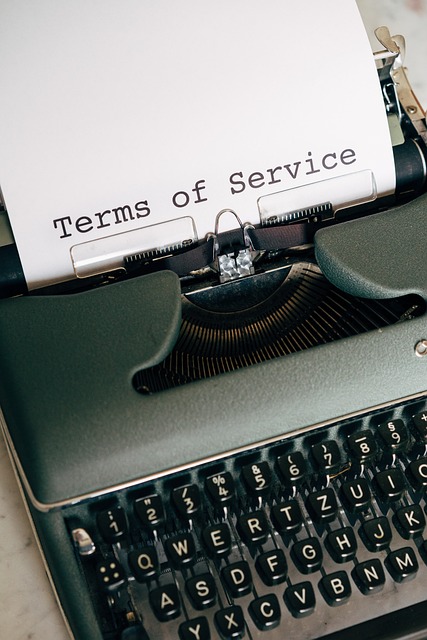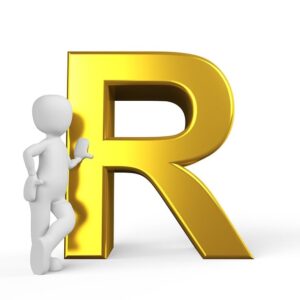Ensuring Compliance: Navigating UK Technical Guidelines with Expert Translation Services
Translation services for UK Technical Guidelines and Standards are essential for global businesses navigating diverse regulatory landscapes. They ensure comprehension of safety, quality, and legal requirements across industries like manufacturing and…….

Translation services for UK Technical Guidelines and Standards are essential for global businesses navigating diverse regulatory landscapes. They ensure comprehension of safety, quality, and legal requirements across industries like manufacturing and healthcare, fostering trust and smooth trade. These services employ qualified translators with industry expertise to overcome language barriers, maintain consistency, and meet post-Brexit legal standards. Technological advancements in AI and ML enhance efficiency while ensuring accurate translations for critical documentation. Choosing a reputable provider specializing in UK regulations is key to staying compliant in today's global market.
Are your UK technical guidelines up-to-date and compliant with evolving legal requirements? This comprehensive guide explores the intricate world of translation services for UK technical guidelines and standards. From understanding the legal framework governing these documents to navigating Brexit’s impact, we delve into best practices, challenges, and case studies showcasing successful translation projects. Discover how choosing the right service provider and implementing robust quality assurance measures are crucial for maintaining compliance in this dynamic landscape.
- Understanding UK Technical Guidelines and Their Legal Framework
- The Role of Translation in Ensuring Compliance
- Key Legal Requirements for Technical Documentation
- Challenges in Translating Technical Standards
- Best Practices for Accurate and Consistent Translations
- Case Studies: Successful Translation Projects for UK Regulations
- Choosing the Right Translation Service Provider
- Quality Assurance and Control Measures in Technical Translation
- The Impact of Brexit on UK Technical Guidelines and Translation
- Future Trends and Innovations in Technical Translation Services
Understanding UK Technical Guidelines and Their Legal Framework

The UK’s technical guidelines and standards are a vital component of ensuring product safety, quality, and compliance with legal regulations. These guidelines provide essential clarity and direction for businesses operating within the UK market, covering various sectors including manufacturing, healthcare, and technology. Understanding this intricate web of regulations is crucial for companies aiming to avoid legal pitfalls and maintain consumer confidence.
Translation services play a critical role in ensuring these technical guidelines are accessible and comprehensible on an international scale. With a diverse economic landscape, UK-based businesses often engage translation experts to facilitate the global reach of their products. Accurate and culturally sensitive translations of technical documents enable companies to navigate legal requirements in different territories, fostering a seamless and compliant trading environment.
The Role of Translation in Ensuring Compliance

In today’s globalised market, ensuring compliance across multiple jurisdictions is a complex task. The UK’s technical guidelines and standards play a pivotal role in this regard, dictating safety, quality, and compatibility for various industries. However, these guidelines are often drafted in English, raising the question of how to guarantee comprehension and adherence among non-native speakers. This is where translation services step into the spotlight, serving as a vital tool for navigating regulatory compliance.
Professional translation services for UK technical guidelines and standards are not just about converting words from one language to another; they involve a nuanced understanding of the legal context and terminologies specific to each industry. Skilled translators with expertise in regulatory affairs ensure that every term and phrase is accurately conveyed, bridging the communication gap between the original document and its international audience. This meticulous process is essential for avoiding misinterpretations that could lead to legal non-compliance, thereby fostering a safe and reliable environment for businesses operating within the UK and globally.
Key Legal Requirements for Technical Documentation

In the United Kingdom, technical documentation plays a critical role in ensuring compliance with various legal requirements, particularly in industries where safety, quality, and data protection are paramount. Key among these regulations are those set forth by the Health and Safety Executive (HSE) for workplace safety, the Data Protection Act for handling personal information, and industry-specific standards like ISO 9001 for quality management. Technical guidelines must align with these laws to avoid legal repercussions and maintain operational integrity.
Translation services for UK technical guidelines and standards are essential to bridge any language barriers and ensure that all stakeholders, including international partners and employees, can understand and adhere to the requirements. Accurate translations not only facilitate compliance but also foster better communication, cooperation, and adherence to best practices across diverse linguistic landscapes.
Challenges in Translating Technical Standards

Translating technical guidelines and standards into compliance with legal requirements presents unique challenges, especially in the UK where a diverse range of industries operate under strict regulations. The first hurdle lies in understanding not only the nuances of each industry but also the evolving legal framework that governs them. This dynamic nature means that what constitutes compliance today may change tomorrow, demanding constant updates and revisions in translated documentation.
Professional translation services play a vital role in navigating this complex landscape. They employ linguists who are not just experts in their fields but also adept at interpreting legal terminology accurately. Moreover, these services often incorporate technological advancements, such as machine translation tools and glossaries, to ensure consistency across various documents and expedite the revision process.
Best Practices for Accurate and Consistent Translations

When it comes to technical guidelines and standards in the UK, accurate and consistent translations are paramount. To ensure compliance with legal requirements, best practices should be followed when engaging translation services for these documents. Start by selecting qualified translators who have expertise in your industry and a strong understanding of both source and target languages. Consistent terminology is key; create a comprehensive term base to maintain uniformity throughout the translated content. This helps avoid ambiguity and reduces the risk of legal misinterpretation.
Additionally, quality assurance processes are essential. Implement thorough reviews by subject matter experts to verify accuracy and ensure the translation aligns with the original intent. Remember that effective communication across languages is crucial for compliance—it’s not just about word-for-word translations but conveying technical information clearly and concisely in a new linguistic context.
Case Studies: Successful Translation Projects for UK Regulations

In the realm of UK technical guidelines compliance, successful translation projects serve as shining examples of best practices. These case studies highlight how organizations have effectively navigated the intricate landscape of regulations, ensuring their documentation is not only precise but also legally sound. By leveraging professional translation services specialized in UK technical guidelines and standards, companies have achieved remarkable results.
For instance, a recent study focuses on a manufacturing firm that required translating its safety protocols into multiple languages for an international audience. The project demanded not just linguistic proficiency but also a deep understanding of the underlying regulations to convey critical information accurately. Through meticulous research and consultation with legal experts, the translation service provider successfully delivered, resulting in uniform compliance across all markets without compromising safety standards. Such projects underscore the importance of professional translation services tailored for UK technical guidelines, enabling businesses to stay ahead while adhering to legal requirements.
Choosing the Right Translation Service Provider

When it comes to ensuring your UK technical guidelines are legally compliant, selecting the ideal translation service provider is a strategic move. It’s crucial to choose a company that not only possesses expertise in technical translation but also understands the nuances of UK legislation and regulatory frameworks. Look for providers with experience handling similar documents to yours, ensuring they can accurately convey complex information while adhering to legal requirements.
The right translation partner will employ native-speaking translators who are well-versed in both your source language and English, guaranteeing precise and culturally sensitive translations. They should also implement quality assurance processes to maintain consistency, accuracy, and compliance throughout the project. With their guidance, you can be confident that your translated guidelines will not only meet legal standards but also effectively communicate essential information to your target audience.
Quality Assurance and Control Measures in Technical Translation

When it comes to technical translation, ensuring compliance with legal requirements is paramount, especially for guidelines and standards specific to the UK. Quality Assurance (QA) plays a pivotal role in this process. Reputable translation services for UK Technical Guidelines and Standards implement rigorous QA processes to guarantee accuracy and consistency. These measures include extensive editing and proofreading by subject-matter experts who verify that the translated content aligns perfectly with the source material.
Control measures are also vital. Translation memory, terminology databases, and consistent formatting ensure that the final output is not only error-free but also maintains a professional and uniform appearance. By adhering to these QA and control practices, translation services can deliver high-quality, legally compliant translations, ensuring your UK technical guidelines meet all necessary standards.
The Impact of Brexit on UK Technical Guidelines and Translation

The departure of the UK from the European Union (Brexit) has had a significant impact on various sectors, including technical guidelines and standards. With new trading relationships and regulations in place, ensuring compliance with legal requirements has become more complex. The UK’s unique position now requires businesses to adapt their practices, especially when it comes to technical documentation and translation services for UK Technical Guidelines and Standards.
One of the key changes is the need for independent translation services that can accurately convey technical information across different languages. While the EU had established harmonized standards, the post-Brexit landscape means these guidelines must now be interpreted and applied within a new legal framework. This presents challenges in maintaining consistency and accuracy during translations, particularly when dealing with specialized terminology. Therefore, businesses must seek out expert translation services that understand the nuances of technical documentation and can adapt to the evolving UK regulatory environment.
Future Trends and Innovations in Technical Translation Services

The future of translation services, particularly in the context of UK technical guidelines and standards, is brimming with exciting possibilities driven by technological advancements. Artificial Intelligence (AI) and Machine Learning (ML) are revolutionizing the industry, offering increased speed, consistency, and accessibility for even the most complex linguistic tasks. These technologies can efficiently process vast amounts of data, enabling translators to deliver high-quality work in shorter timeframes.
Furthermore, as global communication becomes increasingly multifaceted, translation services will need to adapt to accommodate multimedia content, such as video and audio translations, as well as specialized domains like medical, legal, and technical writing. This evolution is already underway, with innovative tools emerging that facilitate precise and contextually appropriate translations, ensuring UK technical guidelines remain legally compliant and accessible to diverse audiences.
Ensuring compliance with UK technical guidelines is vital for businesses operating within the legal framework. By understanding the intricate relationship between these guidelines and legislation, companies can avoid potential pitfalls. Translation plays a pivotal role in this process, requiring specialized services to accurately convey complex information across languages while maintaining consistency. Adhering to key legal requirements for technical documentation, alongside best practices and quality assurance measures, is essential for successful navigation of UK regulations. Brexit has introduced new considerations, but future trends in technical translation, including innovative technologies, offer promising solutions for enhanced compliance and accessibility for international audiences. Choosing the right translation partner specialized in UK technical guidelines and standards is a strategic step towards navigating this evolving landscape effectively.






